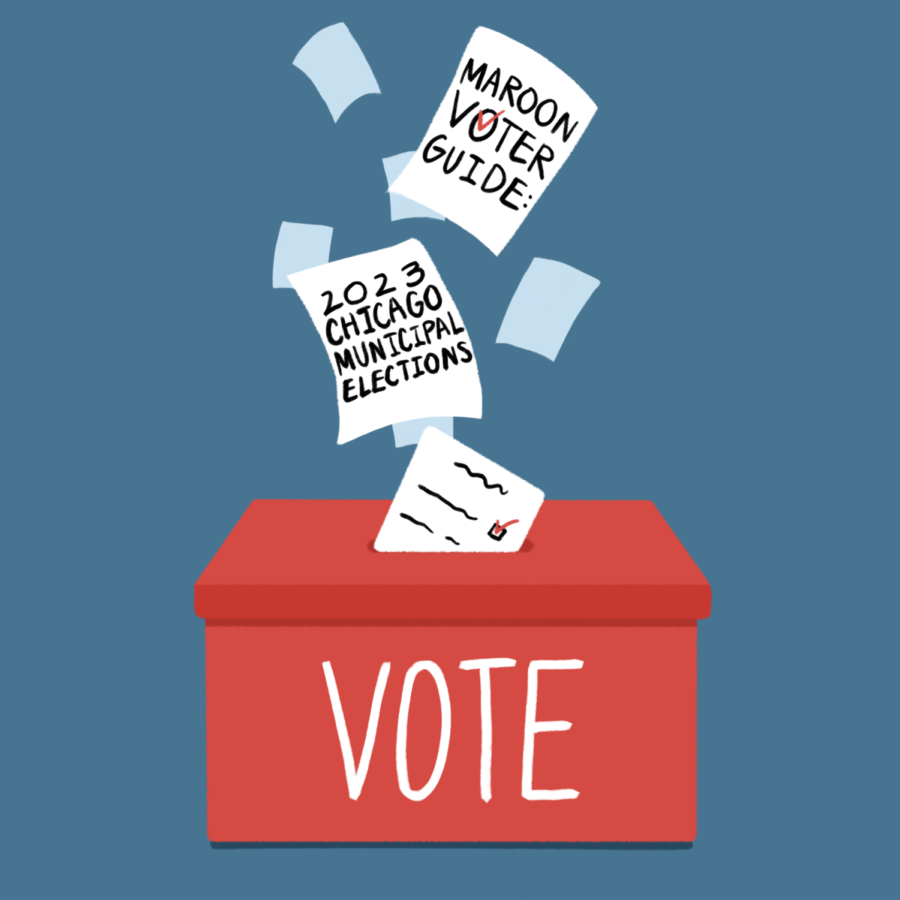What You Need to Know for the 2023 Chicago Municipal Elections
On February 28, Chicagoans will vote for the mayor, city clerk, and city treasurer of Chicago, as well as members of the Chicago City Council and of the Police District Councils.
On February 28, Chicagoans will vote for the mayor, city clerk, and city treasurer of Chicago, as well as members of the Chicago City Council and of the Police District Councils. Administered by the Chicago Board of Elections, the elections will feature incumbent candidates such as Mayor Lori Lightfoot and new organizations like the police district councils.
The mayor, city clerk, and city treasurer are the only citywide elected positions. Residents in each of the city’s 50 wards vote for their respective aldermen, and three police district council representatives will be elected within each of the 22 police districts. All elected officials have four-year terms.
On the mayoral ticket, incumbent Lightfoot faces competition from eight candidates from a variety of backgrounds. Mayoral responsibilities include submitting the city’s annual budget; appointing council committee chairs; and determining the agenda for City Council, composed of the 50 aldermen. Notably, City Council determines which ordinances get passed; the mayor has the authority to appoint people to lead committees.
The alderman position is more uniquely tailored to each councilman’s ward. City Council, with specified limitations, can operate on issues such as housing and safety.
In May 2022, City Council approved changes to Chicago’s ward map for 2023. Though Hyde Park and Woodlawn are still entirely encompassed by the Fourth, Fifth, and 20th Wards, internal shifts have occurred. The region between 51st Street and 55th Street and Cottage Grove Avenue and Ingleside Avenue has shifted from the Fifth Ward to the 20th Ward; the region encompassing Nichols Park from the Fourth Ward to the Fifth Ward; and much of the region between 60th Street and 61st Street from the 20th Ward to the Fifth Ward.
This year, voters will see a new position on the ballot: police district council member. The district councils were created as part of an ordinance passed by the City of Chicago in July 2021 establishing “a new model for police oversight, accountability, and public safety.” Each of the 22 districts will have three representatives. Hyde Park is covered by the Second Police District.
The district councils seek candidates from a variety of backgrounds. Significant roles include “building stronger connections between the police and the community at the district level” and “collaborating in the development and implementation of community policing initiatives.” The Community Commission for Public Safety and Accountability, also created by the July 2021 ordinance, receives input from community members gathered through monthly public meetings hosted by each council. Elected council members can also nominate people to serve on the community commission.
The city clerk and city treasurer positions are uncontested. Incumbents Anna Valencia and Melissa Conyears-Ervin will remain in their respective posts.
The city clerk role is to establish an official record of Chicago City Council sessions and ensure that city residents can access municipal legislation. The city clerk also manages official documents, including parking permits, ordinances passed by City Council, and municipal IDs.
The city treasurer assumes three main roles: banker, investor, and advocate. This official is responsible for keeping a record associated with all of the city’s operating costs; monitoring the city’s investment portfolio; and offering counseling on and disseminating information about financial education, support for small businesses, banking access for residents, and educational programs. The treasurer also manages the Chicago Teachers’ Pension Fund and the four pension funds for city employees.
Early voting will run from February 13 to 28 throughout the city. On campus, students can register to vote and cast their ballots early with UChiVotes at Reynolds Club February 22–24 from 10 a.m. to 5 p.m. with their UChicago ID and proof of housing.
If none of the candidates in each election receive at least 50 percent of the vote, runoff elections will occur on April 4 with the top two candidates in each race. Candidates will assume office in May.
